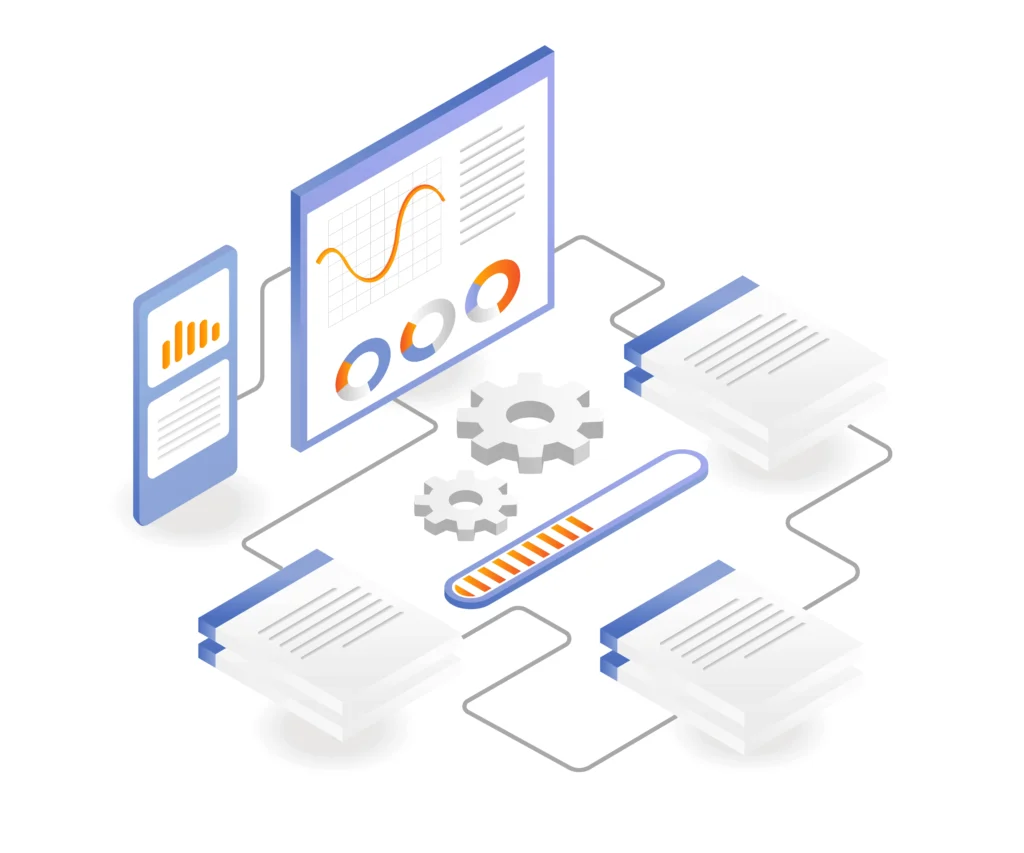Data management tools offer numerous benefits to organisations, such as improving data accuracy, increasing efficiency in data processing, and enhancing data security. These tools also help in streamlining data storage and retrieval processes, enabling better decision-making and analysis. Implementing data management tools can help businesses effectively organise and manage their data to drive success and growth.
But what is a data management tool? Which are the best data management tools? Continue reading to learn more about this software, which is designed to help with the organisation, storage, retrieval, and manipulation of various types of data.
What is a Data Manager Tool?
Software that helps businesses manage their data in terms of storage, retrieval, organisation, and manipulation is known as a data manager tool. Data processing efficiency, data security, and data storage and retrieval process simplification are all greatly improved by these tools. When it comes to managing and preserving data effectively, these tools are indispensable. To handle various facets of data handling, various kinds of data management tools are available.
You might want to learn more about how the data management system works before we go into more detail about the data management tools. Read our article “Data Management System: What Is It and Why Is It Important for Businesses?“ to find out more about that.
Best Data Management Tools in 2024
Conventional data management solutions are client-side and designed to operate in conjunction with client-side databases and on-premises data centres.
On the other hand, cloud computing is where the new data management solutions shine. You can save a lot of money on infrastructure and be flexible when your company needs to change because of this. Some examples include amassing more data, developing new data processing faster, keeping IT infrastructure up and running, and having access to cloud-based tools at all times.
So, what are the best data management tools in 2024? With Svitla blog help, we attempt to compile a list of market leaders in data management solutions.
1. IBM Infosphere Master Data Management Server
With IBM Infosphere Master Data Management Server, businesses can organise their data in a way that provides a unified, trustworthy view and powerful analytics. Built in features include security measures, transaction control, support for multiple domains, event management, and analysis of data quality.
Delivering actionable insights, instant alignment of business value, and compliance with data governance, policies, and regulations across an enterprise, it manages all parts of critical enterprise data, regardless of system or model. IBM Infosphere is capable of managing the entire information lifecycle.
Pros:
- Comprehensive MDM: Provides a centralised view of master data.
- Scalability: Scales to meet the needs of large enterprises.
- Data Governance: Includes features for enforcing data quality standards.
- Integration: Integrates well with IBM products and third-party applications.
Cons:
- Complex Implementation: May require specialised expertise and have a longer deployment timeline.
- Cost: Can be expensive, including licensing, hardware, and maintenance.
Price: Available on request
2. Amazon Web Services – Data Lakes and Analytics
An all-inclusive set of services for creating and maintaining an analytics data lake. With the scalability, agility, and flexibility offered by AWS, data lakes can integrate various forms of data and analytics methods to uncover more profound insights. A full suite of data migration, storage, and analysis services is available from Amazon Web Services.
Pros:
- Security: Emphasises security with encryption, access control, and compliance features.
- Serverless Options: Supports serverless computing with services like AWS Lambda.
- Integration: Seamless integration with popular analytics and BI tools.
Cons:
- Learning Curve: Users may face challenges navigating extensive service offerings.
- Data Transfer Costs: Expenses associated with data transfer between services and regions.
- Vendor Lock-In: Risk of being tied to AWS services.
Price: Based on a custom quote
3. Google Cloud – Big Data analytics
With Google Cloud – Big Data analytics, you can manage all your data in the cloud.
The platform includes tools like BigQuery and Cloud BigTable for tabular data storage and NoSQL database-style storage; data intake with Cloud Pub and Cloud Data Transfer; advanced analysis with ML Engine; Data Studio for graphical user interface analysis and dashboard creation, Cloud Datalab for code-based data science.
Other than that, Google Cloud also lets you connect to business intelligence tools like Tableau, Looker, Chartio, Domo, and more.
Pros:
- Scalability & Performance: Effortlessly handle large datasets with pay-as-you-go pricing.
- BigQuery: Powerful, serverless data warehouse for efficient processing.
- AI Integration: Leverage Google’s advanced AI and ML for deeper insights.
Cons:
- Limited Customisation: May not fit highly specific workflows.
- Vendor Lock-in: Migrating out can be complex.
- Pricing Complexity: Cost management requires careful planning.
- Limited Regional Availability: A smaller data centre network could impact latency and costs.
Price: Based on custom quote

4. Oracle Data Management Suite
Delivering consolidated, consistent, and authoritative master data across an enterprise and distributing this information to all operational and analytical applications, Oracle Data Management Suite is a comprehensive platform that offers a suite of solutions that enable users to build, deploy, and manage data-driven projects.
It supports enterprise-wide change awareness, policy compliance, repeatable business processes, cross-functional collaboration, and data governance and quality.
Pros:
- One-stop shop: Manages data integration, quality, governance, and warehousing (Exadata).
- Boosts data quality: Improves data accuracy for better decision-making.
- Saves time and money: Automates tasks and potentially reduces costs.
Cons:
- Expensive: Can be costly to buy and implement, especially for smaller businesses.
- Complex: Requires expertise and training to use effectively.
- Vendor lock-in: Switching to other vendors can be challenging.
- Limited flexibility: May not be as customisable as some alternatives.
Price: $6+ per GB per month.
5. SAP Data Management
SAP Data Management provides you with a unified platform that connects on-premises and cloud-based solutions with all types of data—transactional, analytical, structured, and unstructured.
It is possible to implement an intelligent data management process using the tools they provide for metadata management. This process can then take advantage of the many advantages offered by the cloud, such as its low total cost of ownership, elasticity, serverless principles, high availability, resilience, and autonomous behaviour.
Pros:
- All-in-one: Simplifies data tasks with a single platform.
- Better governance & quality: Improves data consistency and reliability.
- Seamless SAP integration: Works well within the SAP ecosystem.
Cons:
- Expensive: It can be costly for small businesses, and maintenance adds to the expense.
- Complex: Requires training and expertise to use effectively.
- Limited flexibility: May not be as customisable as some alternatives.
Price: Available on request
That concludes the list of the best data management tools. Before using any of the tools on this list, you should familiarise yourself with the data management framework. Read more about it in our article, “Data Management Framework: Definition, Importance, and Steps“.
Conclusion
Businesses must invest in the right data management tools as they navigate the complexities of the digital age. Data is more than just an asset; with the correct tool, it can be transformed into a strategic advantage. Before you choose data management tools, think about your organisation’s specific problems and needs. Then, pick ones that will help you achieve your data-driven future goals.
Ready to take your data management to the next level?
Nexalab data visualisation service can help you make sense of your data, turning it into valuable insights that drive strategic decisions.
We offer the data management tools for you, including Interactive Dashboards, Data Integration and Aggregation, Advanced Analytics and Forecasting, Automated ETL Workflows, Customised Visualisations, Real-time Data Updates, Data Quality and Validation, and Security and Compliance.




